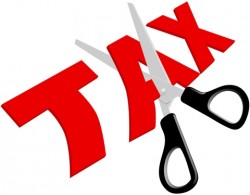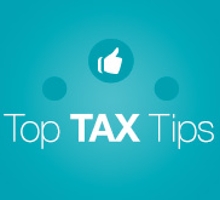The Emergency Budget: What SME’s Could Expect
 Chancellor of the Exchequer George Osborne has announced that he is to deliver an ‘emergency’ Budget (also referred to as a summer Budget) on July 8 2015, just four months after Budget 2015 was delivered on 18 March 2015 ahead of the recent general election.
Chancellor of the Exchequer George Osborne has announced that he is to deliver an ‘emergency’ Budget (also referred to as a summer Budget) on July 8 2015, just four months after Budget 2015 was delivered on 18 March 2015 ahead of the recent general election.
Though it may seem unusual to deliver two budgets in a year, Mr. Osborne’s very first Budget was also an emergency Budget, taking place directly after the Conservative and Liberal Democrat coalition was formed in 2010.
Why Hold an Emergency Budget
Next month’s emergency budget is taking place because the policies announced and elaborated upon in the last budget, on 18 March, were created by a coalition Government; not the Conservatives alone.
With the Conservatives winning an overall majority at the general election on 7 May, it became clear with the announcement of the emergency budget that the Tories now wish to declare their own policies, without any pressure from (or consolations for) the Liberal Democrats.
What to Expect
Though the Chancellor has already stated that the focus of next month’s emergency budget will be to turn the Conservatives election promises into a reality by focusing on delivering on the commitments they made to working people at Budget 2015, if you’re a small or medium-sized business (SME) owner there won’t be a shortage of things to listen out for during July’s emergency Budget
It’s being reported across many sources that George Osborne will use his platform at the emergency Budget to speak of the country’s latest economic growth forecasts (with a focus, as always, on economic recovery), alongside taking the time to outline further the Government’s plans, as laid out in the Conservative Party’s manifesto prior to the general election, to:
- Provide spending cuts and reforms to individual welfare (reducing the Welfare bill by £12 billion a year) and pensions, as we detailed in our recent summary of the pension reforms,
- Prevent rises in Income Tax, Value Added Tax (VAT), and National Insurance; a direct benefit to small business owners,
- Increase the tax-free personal allowance amount to £11,000 in April 2017, and increase the higher-rate tax threshold,
- Increase the Inheritance Tax threshold on homes to £1 million by 2017.
Although it’s unclear whether it will receive a mention during the emergency Budget itself, SME owners are encouraged to keep an eye on any developments surrounding the in-out European Union (EU) Referendum, which is currently scheduled to take place before the end of 2017. An ‘out’ vote (or further stalling on when a vote should take place) has the power to affect your business even if you don’t currently trade in or with other countries within the European Union.
Experienced SME Accountants
To speak with a professional to discuss how the emergency Budget could affect your business, or for any other reason, contact us today on 020 8780 2349 or get in touch with us via our contact page to arrange a complimentary, no-obligation meeting.
New Enterprise Bill Plans to Reduce Red Tape for Small Businesses
 Touched upon in last month’s Queen’s Speech, Business Secretary Sajid Javid recently put forward a new Enterprise Bill that’s designed to help reduce regulation on small businesses so they can concentrate on growth and will, in turn, create jobs.
Touched upon in last month’s Queen’s Speech, Business Secretary Sajid Javid recently put forward a new Enterprise Bill that’s designed to help reduce regulation on small businesses so they can concentrate on growth and will, in turn, create jobs.
Speaking at the Engine Shed business centre in Bristol, Mr. Javid is quoted:
“Small businesses are Britain’s engine room and the success of our whole economy is built on the hard work and determination of the people who run and work for them. As Business Secretary I will always back them and, in my determination to get the job done, one of my first steps will be to bring forward an Enterprise Bill that helps them to succeed and create jobs.”
The Enterprise Bill commits to cutting red tape for small businesses by at least £10 billion over the next five years, with a European Union (EU) Commission also being put together to cut EU red tape, though it’s unclear what affect the upcoming EU referendum could have on these efforts. The Bill also commits to forming a Small Business Conciliation Service to settle late payment disputes.
Small Business Conciliation Service
Designed to settle disputes between small and large businesses over late payments, the Small Business Conciliation Service allows small business owners to avoid expensive legal costs that would otherwise make challenging late payment fees an irresponsible use of their time and capital, as they fear their chances of success are slim.
Speaking in Bristol, the Business Secretary said, “There’s a situation familiar to small business owners up and down the country. A letter turns up from a larger customer changing payment terms, or charging them to remain a supplier and in some cases even deducting that charge on the spot against payment owed. This pattern of behaviour is an outrage. It’s bullying – pure and simple.”
Issues around payment can affect small businesses from both sides. According to the Government, small businesses across the country are currently (as of May 2015) owed over £32 billion in late payments by larger companies, yet the majority of these small businesses are either unaware of their rights surrounding the collection of these payments, or they’re reluctant to bring legal challenges.
Asking for Small Business Input
Speaking at the same event in Bristol, Business Minister Anna Soubry noted that the Government will be speaking with small businesses up and down the country over the coming months to ask for their help in identifying areas that are creating “needless burdens” for small business owners, both at home and in Europe.
Commenting on the Enterprise Bill, Ms. Soubry highlighted the importance of the Government getting behind small businesses, noting, “This will be a no nonsense bill to back small businesses and help create jobs, giving financial security and economic peace of mind to hardworking people across the country.”
Experienced Accountants who can assist you with the New Enterprise Bill
If your small or medium-sized business (SME) is currently inundated with “needless burdens” and Government red tape, consider speaking with one of our professional, experienced accountants here at TaxAgility. We’ve been working with SME owners for many years, helping them to resolve disputes and receive the money they’re owed.
To speak with a professional to discuss what the new Enterprise Bill means for your business, or for any other reason, contact us today on 020 8780 2349 or get in touch with us via our contact page to arrange a complimentary, no-obligation meeting.
Ten Ways to Pay Less Tax
 Looking for smart ways to pay less tax should be seen as a critical part of your tax planning, both on behalf of your personal finances and the finances of your business.
Looking for smart ways to pay less tax should be seen as a critical part of your tax planning, both on behalf of your personal finances and the finances of your business.
Though some may feel that doing all you legally can to keep your tax bill as low as possible isn't something they would wish to be associated with, the truth is you're already paying for these reliefs and allowances to be used by others.
Regardless of how you feel about them, these reliefs, allowances, and exemptions are here to stay.
The only question is – are you going to use them, or be used by them?
Tax Relief on Pension Contributions
 In an effort to encourage you to put something aside for your retirement, the Government provide varying levels of tax relief on private pension contributions, whether you’re placing money into a personal or workplace pension (or both).
In an effort to encourage you to put something aside for your retirement, the Government provide varying levels of tax relief on private pension contributions, whether you’re placing money into a personal or workplace pension (or both).
This tax relief on private pension contributions can be used to reduce the amount of tax you pay, or increase the size of your pension fund, with you being able to claim relief worth up to 100 percent of your annual take-home earnings (including your salary, dividends, and all investment income).
Keep in mind, in order to be able to claim tax relief your personal (or workplace; whether your own, or your employer’s) pension provider must be registered with HM Revenue and Customs (HMRC).
Personal Pensions
Because you’ve already paid tax on any income you pay into a personal pension you’ll automatically get tax relief on these contributions, with your pension provider claiming back your income tax at the basic 20 percent rate to place into your pension pot (known as the ‘relief at source’ method).
If you pay tax at the higher, 40 percent rate, the Government allow you to claim back the extra 20 percent tax you paid on your pension contributions via your Self Assessment tax return to ensure you’re not missing out. If you don’t currently complete a Self Assessment tax return you may contact HMRC directly to reclaim the extra tax payments.
Workplace Pensions
If you’re self-employed with a number of employees of your own, there’s a good chance that you already have a workplace pension set up for them, and yourself.
If you’re employed by someone else, however, you may find that your employer has been making contributions into your workplace pension all along; with them deriving these contributions from your pay directly before they deducted your income tax. Known as a net pay arrangement, you won’t pay tax on these workplace pension contributions but you will be liable to pay National Insurance Contributions (NICs) on them.
Limits to Tax Relief on Pension Contributions
There is, of course, a limit to the amount of tax relief you can receive on your private pension contributions in a given year; though this limit is, arguably, very reasonable.
You can receive tax relief on contributions up to 100 percent of your annual take-home earnings (up to the age of seventy-five), with you being able to place these contributions into a number of different pension schemes, not just one. The Government, on their website, make it clear that it’s your (or your accountant’s) responsibility to ensure you don’t receive tax relief worth more than 100 percent of your earnings in a given year.
The actual amount you can save into private pension schemes each year has a top quota, with this being £40,000 for the 2015-16 tax year.
Experienced Tax Accountants
To speak with a professional tax accountant to discuss receiving tax relief on pension contributions, whether in your personal or workplace pension, contact us today on 020 8780 2349 or get in touch with us via our contact page to arrange a complimentary, no-obligation meeting.
Tax Tips and News for June 2015
This issue … Make the Best of Allowances; Non-resident Capital Gains Tax; EIS Assurance; Staff Clothes; June Question and Answer Section; June Key Tax Dates
Make the Best of Allowances
As the sole owner/director of your company you face a dilemma over how to extract income from that company. If you pay yourself a salary of more than £8,060 per year you will have to pay class 1 NIC at the rate of 12% on the excess pay above that threshold up to £42,385 pa. However, income tax is not due until your salary tops £10,600 (the value of your personal allowance for 2015/16).
One solution is to take a salary of up to £8,060 and any further income as dividends of up to £30,892 pa (£34,325 gross including the 10% tax credit). This combination would mean a zero tax and NIC bill, but gives you an NI credit to qualify for the state pension. However, £2,540 of your personal allowance is "wasted" as the 10% dividend tax credit can't be reclaimed when the personal allowance is set against a dividend.
If your spouse receives a salary that exceeds their personal allowance, but does not pay 40% tax another adjustment is possible. You can now transfer £1,060 of your personal allowance to your spouse. This will allow them to save tax of £212 (£1,060 @20%).
However, to avoid you slipping into the 40% tax bracket you must also reduce the level of dividends you take to a maximum of £29,938 (£33,265 gross) for 2015/16. The result is that the family as a whole has the same tax allowances, but the income tax paid has decreased by £212.
Non-resident Capital Gains Tax
If you are involved with sales of UK residential property where the buyer or seller is tax-resident outside of the UK, you need to be aware of a new tax that came into effect on 6 April 2015: non-resident CGT (NR CGT).
The NR CGT charge is applied at different rates according to whether the seller is a non-resident closely-held company, fund, individual, personal representative or trustee. It applies to gains made in the period from 6 April 2015 to the disposal date of the property, so a small amount of tax likely to be payable on property sales made in 2015/16.
However, when such a sale is made a NR CGT return must be submitted to HMRC within 30 days of the conveyance of the property, and this must be done online. The return must be made whether there is any NR CGT to pay or not, where there is a loss on the disposal, and even where the taxpayer is due to report the disposal on their own personal or corporate self-assessment tax return.
Where the vendor is not registered for UK income tax, corporation tax or the annual tax on enveloped dwellings (ATED), the NRCGT charge must be paid within 30 days of the conveyance date. This payment can only be made once the NRCGT return has been submitted and HMRC have replied with a reference number to use when making the payment. There are penalties for failing to file the NR CGT return on time, and failing to pay the tax on time.
If the taxpayer is registered for UK tax they can opt to pay the NRCGT due at the same time as the tax due for their normal personal or corporate tax.
Conveyancing solicitors need to be aware of the very tight tax reporting and payment deadlines. Property developers need to warn non-resident customers that they will be liable to tax on any gain made when they sell the residential property and that gain includes any discount in the price achieved by buying "off-plan".
EIS Assurance
The Enterprise Investment Scheme (EIS) provides some very attractive tax incentives for investors who subscribe for shares in small companies. If you are thinking of attracting investors using the EIS you should first get an advance assurance from HMRC that your company will qualify.
However, HMRC has recently changed the conditions under which it will give that advanced assurance. It will no longer grant assurance for an EIS application if the company is:
- over 7 years from its first sale and has not received funding under the EIS, or other tax advantaged venture capital scheme; or
- has received more than £10 million in funding under those schemes.
There is an exception to the 7-year rule for companies that are seeking to raise over 50% of their average annual turnover under the EIS in one go, and this is the company's first attempt at using one of those tax-advantaged venture capital schemes.
There are also new conditions for the investor. He or she must hold no shares in the company at the time they make their first EIS investment, ignoring any subscriber shares issued when the company was founded, and shares already issued under SEIS or VCT.
Staff Clothes
If you provide clothes for your staff to wear at work you need to be aware of the tax and VAT implications which may vary according to the items provided.
Where the items provided constitute a uniform or protective clothing which is needed to perform the job, the cost is tax deductible for the business and the VAT can be reclaimed. There is no taxable benefit in kind for the employee.
If the clothes are not considered to be a "uniform" and can't qualify as protective clothing, the tax treatment depends on whether the employees are permitted to keep the items.
Where ownership of the items effectively passes to the employee you should generally treat the provision of the clothes as a sale at cost price, in which case you must account for VAT as if the clothing items had been sold at the cost to you. This can apply when sales staff in a clothing store are given clothes to wear from the store's range, and are not required to return those clothes if they leave the company's employment. The value of the clothes provided may also be a taxable benefit for the employee, which needs to be accounted for either on the annual form P11D or as part of a payroll settlement agreement (PSA).
Where the value of the items provided to any one employee is less than £50 in the tax year, the provision can be treated as a business gift by the employer. In this case the employer does not treat the value of the clothes as a sale. The taxman may also agree that the value of the clothes is a trivial benefit which is not taxable on the employee. However, it is best to establish this position with the tax office in advance. We can help you with that.
June Question and Answer Section
Q. I work as a self-employed air-conditioning engineer, which involves servicing and maintaining air-conditioning units and occasionally fitting new units. I would like to take advantage of the flat rate VAT scheme for small businesses, but I am confused as to what business category to choose. Do you have a suggestion?
A. It is crucial to choose the right business sector when registering for the flat rate scheme, as the sector can't be changed retrospectively. The higher the flat rate percentage (which is determined by the business sector), the more VAT you have to pay over to HMRC each quarter.
If the majority of your income comes from other businesses it would be sensible to choose "business services not listed elsewhere" which carries a flat rate percentage of 12%. If the larger proportion of your income is from individuals then the business category "repairing personal or household goods" may be more appropriate, which carries a flat rate percentage of 10%. You must choose the business category which is appropriate to the largest slice of your income, and review that decision every year on the anniversary of entering into the flat rate scheme.
Q. Following the relaxation of the pension rules in April I took a cash lump sum from my pension scheme but the pension company deducted tax from the payment. I have no other income in this tax year so I shouldn't have to pay any tax. How do I get that tax back?
A. You make a tax refund claim using one of the online forms on the GOV.UK website designed specifically for this situation (form P55, P50Z or P53Z). The form to use depends on whether you have other income or not and whether you have taken out your entire pension pot or not. We can advise you which tax reclaim form is right for your circumstances.
Q. My father employs a care-worker to provide personal care for his disabled wife in their home. The cost is significant, including NIC and PAYE. Is there anything he can do to reduce the cost?
A. People who employ care-workers in their own homes can claim the employment allowance for 2015/16 which is worth up to £2,000 to set against the employer's national insurance contributions (NIC). The allowance wasn't available for such employers in 2014/15 due to the general block on using it against class 1 NIC due on the pay of domestic workers, but the law changed in April 2015.
Your parents may also qualify for state support such as the Attendance Allowance and Disability Living Allowance which are not taxable. If your mother is aged under 65 she may qualify for Personal Independent Payment (PIP).
June Key Tax Dates
19/22 - PAYE/NIC, student loan and CIS deductions due for month to 5/6/2015
We are committed to ensuring none of our clients pay a penny more in tax than is necessary and they receive useful tax and business advice and support throughout the year.
If you need further assistance just let us know – we're here to help!
Contact us today on 020 8780 2349 to discuss how any of the above affects your personal or business finances or get in touch with us via our contact page to arrange a complimentary, no-obligation meeting.
This blog is a general summary. It should not replace professional advice tailored to your specific circumstance.




